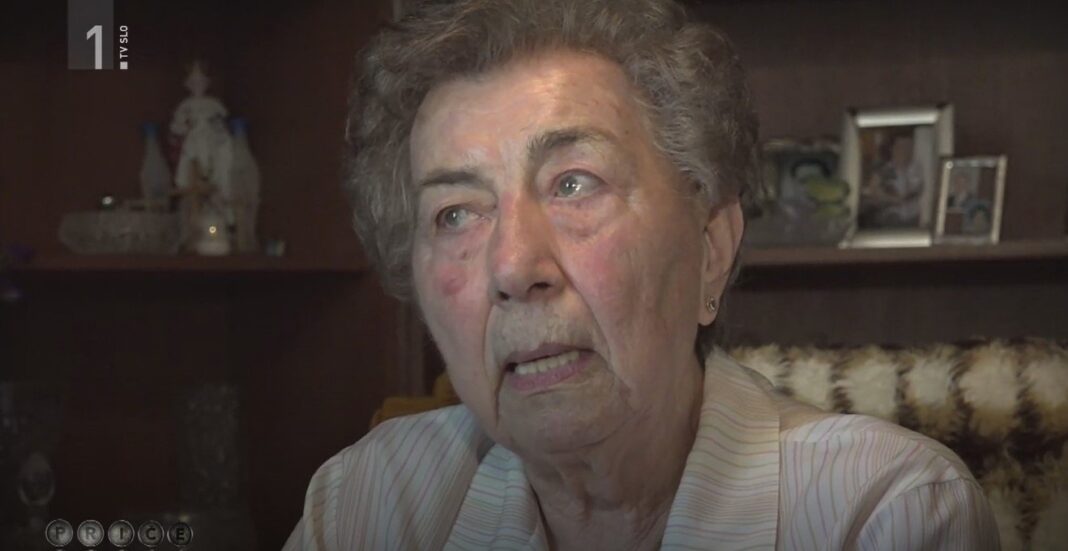By: Sara Kovač /Nova24TV.si
This time, Ana Kosič from Opatje selo on the Karst spoke in the show Pričevalci. With a lively and sincere narration, she told how it was during the First World War, when her ancestors were emigrated to the Czech Republic due to the proximity of the Soča front, where they were very well received and therefore kept in touch with the people there. When they returned home after the war, everything was destroyed, Italy ruled, which treated the Slovenians like a stepmother.
But people stuck together, the village breathed as one, there was a lot of sociability and shared joy. Kosič also described the family situation very well and honestly, and through the narrative took us to the time of fascism and the collapse of Italy, when partisans also appeared between Trieste and Gorica. “The first rebels, partisans, were young, local boys who were unemployed and were promised “everything possible”. That was in 1942. Many had degenerated, they were no longer our boys, as we were used to them, politics took its toll. They were naive and fell for the promises,” recalled Kosič.
But more than the work of national liberation, the partisans marked the village and the surrounding area with the savage murders of several locals, including the 16-year-old neighbour Vilma Ferletič. “The neighbour Vilma was killed when the partisans had a parade in the village and the girls had paper flags, which she accidentally stepped on. Another neighbour later accused her, and shortly after that the girl was killed. And that is when the tragedy in the village began,” said Kosič, and continued: “The partisans came to look for her and took her not far from home. Her mother followed her, she said that she was raped and shot. They buried her so that she was still on top.” Because the mother became mentally ill after that and in order not to “betray” anyone, they also killed her and her husband, remembered Kosič.
They were placed in front of the wall to be shot
Communist guerrillas killed as many as nine locals. With sadness, Ana truthfully describes the tragic events of that time, which marked the village so much that the connection and joy they knew before the war never returned. She also remembers how the Germans placed a group of villagers in front of the wall as a result of a partisan campaign – they were saved by the pastor and innkeeper Pahor, who knelt before the occupier and begged for a solution. “They put them in the square to shoot the husbands and burn us in the village. At that time there was an attack on a German patrol. All the people were placed in the square, children, and wives, but the husbands were placed on the other side. I remember them putting a red thing on the floor and asking them if they believed in that colour. Weapons were ready, machine guns on the bell tower and on the balcony of the rectory,” she recalled. “Mr. Pahor, the innkeeper, knelt before the commandant and begged the Germans to burn him and leave the others. There was an adjournment to withdraw for three hours, then they would set fire to the village. But they did not come back.”
Those who committed these crimes were never punished. “Come on, they were even deserving,” she said. She remembers that they still bragged about their crimes, but they were not punished. “They joined the Party, to high positions, their children could study for free.”
Pahor was also among the victims of the partisans. Relief came after the war, when they were under British occupation for a while, but when these places were also occupied by Tito’s Yugoslavia, shortages and running across the border and related harassment began. Ana spoke about her rich family history and her life path, in which she remained faithful to the nation and God. She was also principled when an Udba member asked her, an employee at the post office, to provide him with letters from abroad. She refused him, but it was clear that the communist dictatorship controlled everything. That is why she was especially happy when Slovenia became independent in 1991.

